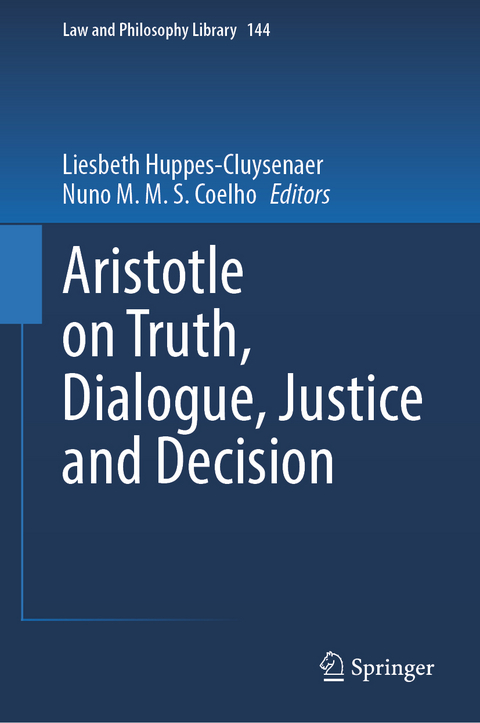
Aristotle on Truth, Dialogue, Justice and Decision
Springer International Publishing (Verlag)
978-3-031-45484-4 (ISBN)
No longer limiting itself to abstract theories, the book then seeks to navigate the practical terrain of science and politics. Drawing inspiration from Aristotle, renowned for his investigations into the intricate connections between theory, technology, ethics, and politics, it tackles the essential question: How can we reconcile divergent views?
At the book's core lies Aristotle's revolutionary concept of dialogue, which portrays truth as a delicate equilibrium between opposing forces, transcending the rigid boundaries of true and false. Join this captivating journey as the author reveals the hidden paths to meaningful coexistence in a world filled with conflicting perspectives.
lt;p>Liesbeth Huppes-Cluysenaer taught legal philosophy and legal sociology at the University of Amsterdam, where she coordinated the project about leading Dutch legal theorist Paul Scholten (1875-1946). Her research area is the relevance of theory of science for Jurisprudence, about which she wrote her thesis in 1995. Since 2009 she has (co)convened special workshops on the philosophy of Aristotle at the bi-annual IVR conferences, which resulted in two edited volumes, "Aristotle on Emotions in Law and Politics" (2018) and "Aristotle and the Philosophy of Law: Theory, Practice, and Justice" (2013), published by Springer.
Nuno Manuel Morgadinho dos Santos Coelho is specializing in Philosophy of Law and currently professor at the University of São Paulo, serving as the Dean of the Law School in Ribeirão Preto. With a strong focus on Ancient Philosophy, Ethics, Legal Theory and Political Philosophy, he has made contributions to these fields through exploring the philosophical foundations of law in its practical implications. His in-depth studies of particularly Aristotle's works, seek to provide insight into the role of emotions in law and politics. He (co)edited "Aristotle on Emotions in Law and Politics" (2018) and "Aristotle and the Philosophy of Law: Theory, Practice, and Justice" (2013), published by Springer.
1. About Aristotle's Supposed Methodological Essentialism and Absolute Monarchism.- 2. Aristotle's Language for Success in (Practical) Explanations.- 3. The Political Nature of Logos in Aristotle.- 4. Aiming for True Life as an Act of Choice.- 5. Aristotle's Contribution to the Judiciary Construction of Science.- 6. Aristotle's Anthropological Conception of Justice in the Contemporary Context.- 7. Aristotle on Arbitration, Forgiveness and Rational Dialogue.- 8. Rhetorical Truth: Aristotle (and Gorgias) on Deliberation and Agonism.- 9. Aristotle's Model of Rhetoric and Contemporary Patterns of Argumentation: on some Aristotelian Challenges.- 10. Practical Reason, Technical Perception and the Judge.- 11. Aristotelian Eudaimonism as Common Ground for Dialogue on the Good Life.- 12. Aristotle's Conception of Truth, Perception of Particulars and Problem of Conceptualization.
| Erscheinungsdatum | 30.12.2023 |
|---|---|
| Reihe/Serie | Law and Philosophy Library |
| Zusatzinfo | XIII, 255 p. 1 illus. |
| Verlagsort | Cham |
| Sprache | englisch |
| Maße | 155 x 235 mm |
| Gewicht | 565 g |
| Themenwelt | Geschichte ► Teilgebiete der Geschichte ► Militärgeschichte |
| Recht / Steuern ► Allgemeines / Lexika | |
| Recht / Steuern ► Rechtsgeschichte | |
| Schlagworte | Assessment of Scientific Truth • Correspondence Between Thought and World • Dialogical Truth • Divergent Truth Claims • science and politics • Unamity in Science |
| ISBN-10 | 3-031-45484-7 / 3031454847 |
| ISBN-13 | 978-3-031-45484-4 / 9783031454844 |
| Zustand | Neuware |
| Haben Sie eine Frage zum Produkt? |
aus dem Bereich


